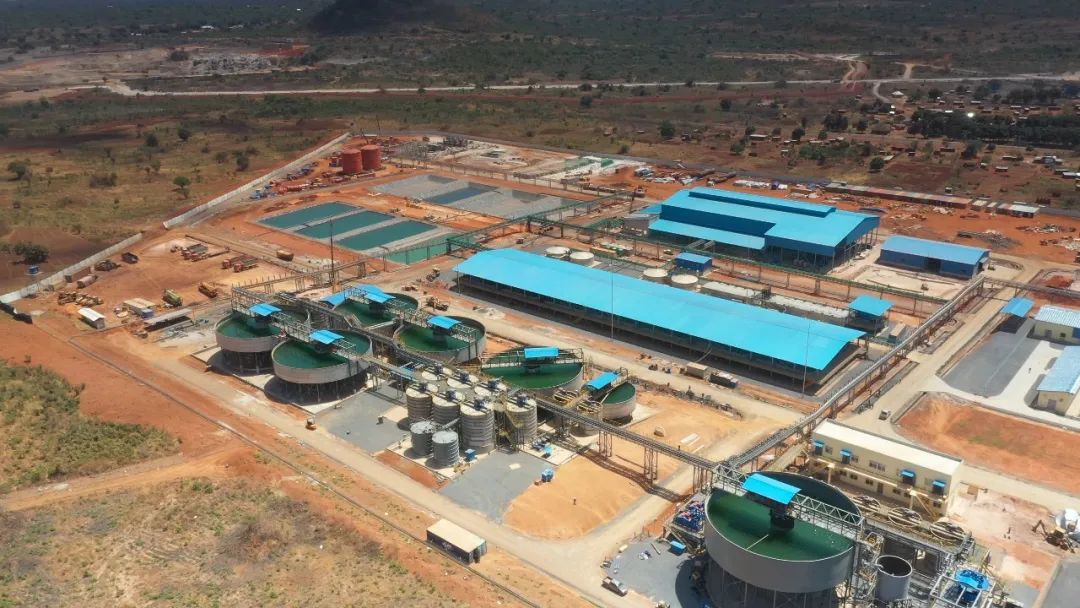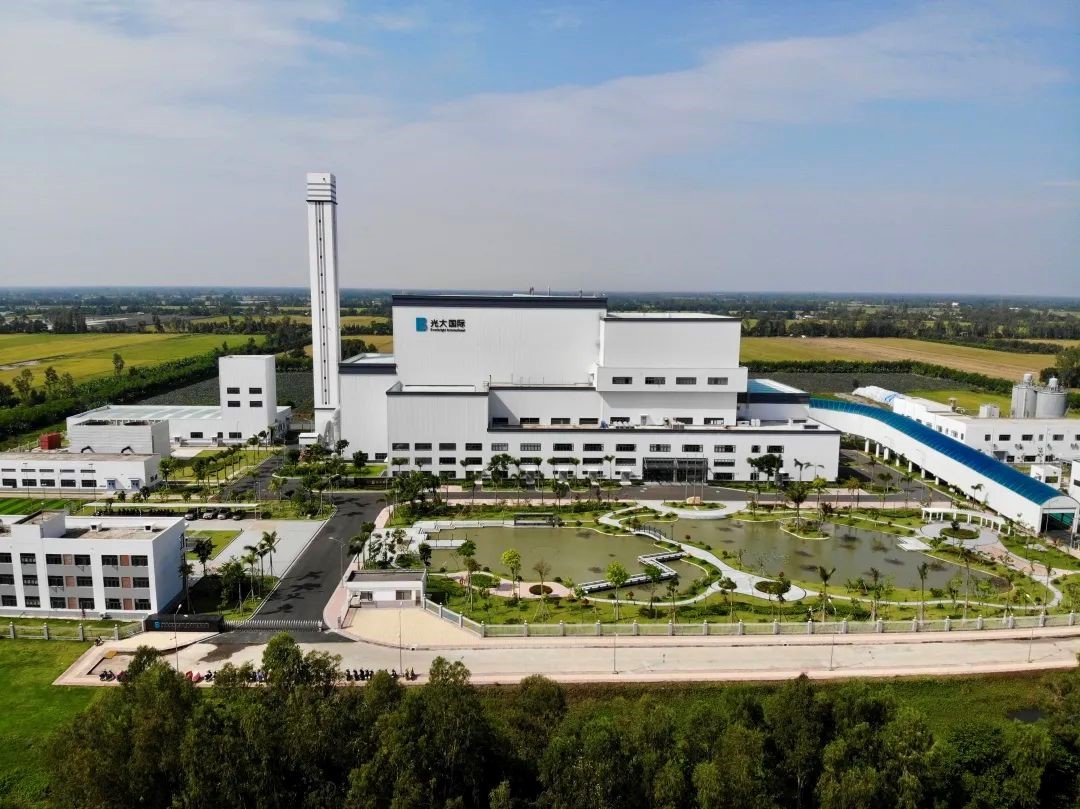Greater Bay Area Opportunities - Capitalising Hong Kong's Unique Edge
By Association of Chartered Certified Accountants
Study findings and recommendations for the GBA initiative
ACCA Hong Kong believes the development of the GBA could serve as a platform to forge stronger ties between Hong Kong, Macau and the other 9 member cities in Guangdong. Stronger ties could create greater synergies that enable each city to give full play to its competitive edges, make the entire region better off, and break through a silo mentality that creates expensive competition within the region. These synergies may be achieved with the right policy mix. It is ACCA’s position that the member cities should work to cooperate and complement each other.
After a careful study and consultation with its members that make up a wide cross-section of the business community in Hong Kong, ACCA Hong Kong compiled a list of four recommendations for consideration. The programmes and policy recommendations outlined below could, if implemented, empower Hong Kong to leverage its participation in the GBA into greater and more sustainable growth while driving the development of the GBA as a whole.
The 11 cities in the GBA have different level of development and their own competitive edges. A clear definition and transparent division of the role of each of the 11 GBA cities is vital for the success of the GBA initiative.
Hong Kong is China’s most internationalised metropolis and one of the freest economies in the world. It has been ranked as the world’s freest economy for 23 consecutive years and is well-known as an international financial centre, trading centre and shipping centre. It has an efficient and well-regulated capital market that offers an excellent platform for attracting investments and raising capitals for high potential innovative industries in the GBA. Advanced expertise in asset management and insurance services are other areas that Hong Kong can contribute to the development of the GBA.This is further supported by the abundant supply of well-trained finance and accounting professionals. As shown in the results of the survey, 33% of respondents said Hong Kong should position itself as a financial hub to attract international investment and channel the capital to further develop the GBA.
Apart from its world-class financial infrastructure, Hong Kong has a well-established common law regime, sound rule of law, structured arbitration and regulatory systems benchmarked with international standards, as well as high degree of integrity and transparency. Clean and efficient governance is also valuable in the eyes of both mainland firms and international investors. Grounded on these characteristics, plus the city’s solid strengths in professional services, Hong Kong can give full play to its unique advantages, take a leading role in driving the success of the GBA initiative and transform GBA to a future international cosmopolitan.
On the other hand, other cities in the GBA, such as Zhuhai and Jiangmen, have other strengths which Hong Kong lacks: abundant supply of land, skilled labour, diversified industries and, more importantly, a rapid growing middle class group. These not only provide resources that complement the Hong Kong economy, but also offer a huge market for Hong Kong’s businesses and professional services providers.
To better capitalise on the opportunities and to create synergies, a clear understanding of each city’s competitive advantage is the first crucial step. This would serve as a basis for further collaboration and cross-boundary exchanges at all levels. The HKSAR Government is therefore recommended to take the lead to conduct thorough researches and studies by industries and business sectors to examine the strengths and needs of each city in details in order to identify opportunities for collaboration, facilitate further business integration and accelerate the growth.
As the Chief Executive of HKSAR, Carrie Lam pointed out in her 2017 Policy Address, Hong Kong’s position as an international cosmopolitan city could help attract world-class talent to both the HKSAR and the GBA. This also resonates with our survey findings that 25% of the respondents said Hong Kong should position itself as a knowledge hub to boost financial and professional services in the GBA.
2.1 Take measures to attract world-class talent
Being one of the most cosmopolitan and vibrant cities in the world, Hong Kong appeals to many world-class talent who would like to explore and seize the opportunities brought by the rapid economic expansion of China, work in the GBA but prefer to live and spend their holidays in Hong Kong. To attract these skilled talent from around the world, especially those from innovative and technological industries, the HKSAR Government is recommended to relax the rules and process for employment visas, to accelerate the establishment of international schools as well as to provide one-time short term subsidies to encourage these global talent to relocate to Hong Kong.
2.2 Promote cross-boundary job rotations
Given its established strengths as an international city, Hong Kong has been nurturing a pool of high-end talent with global exposure, international insights and diverse experience. Hong Kong should embrace the mission to connect the rest of the GBA cities to the global business world. To encourage freer flow of talent, the HKSAR Government could explore opportunities with governments in the various cities for sponsoring job exchange programmes and spur a mutual exchange of skills and talents across different industries to work in other cities. This would not only facilitate the diffusion of knowledge, experience and technologies, help the smooth integration of Hong Kong into the GBA economy, but also potentially solve any labour shortage issues in certain industries in Hong Kong.
2.3 Retain graduates
Hong Kong has 8 world-class universities / tertiary education institutions that groom over thousands of our next generation each year. Adopting international standards in curriculum design and quality assurance, large numbers of top students from mainland China come to Hong Kong for education each year. Nevertheless, many of them return to their home cities in the mainland reluctantly after graduations even though they are offered working opportunities in Hong Kong as the current immigration regulations cannot facilitate less experienced graduates to work in Hong Kong. This represents a significant loss of human resources after years of investments of education spending. To retain valuable talent to work in Hong Kong to enhance Hong Kong’s competitiveness and enable a better integration with the GBA, the HKSAR Government needs to reassess the current immigration regulations, and remove hurdles for freer flow of people.
2.4 Remove hurdles for working and settling in the GBA
As revealed in the survey, when asked about what measures the HKSAR Government can take to make the GBA initiative beneficial to Hong Kong employees, 40% of the respondents suggested the government lobby with mainland Chinese authorities to remove the 183 days rule that subject Hong Kong people working in China to China tax. Also, 30% suggested the government publish job opportunities openings in the GBA area. This is followed by organising career seminars and/or training programme to upskill Hong Kong job seekers (28%) and liaising with other cities to allow Hong Kong people working in the mainland to purchase properties and to enjoy similar benefit as local staff, such as life-long retirement benefit (2%).The HKSAR Government can consider work together with governments of the other 10 cities to facilitate freer flow of labour / talent to create the synergy for the whole region.
2.5 Upskill local workforce
Hong Kong can ride on the GBA initiative to diversify its economy, in particular to become an international innovation and technology hub.
To support the transformation of Hong Kong businesses to upskill in technology, the working population needs more training to keep up with the technological advancements. Most businesses in Hong Kong may not have the resources to sponsor staff trainings on new technologies that are perceived as outside the scope of their businesses. To upgrade the labour skill sets, cash rebate or subsidy can be granted by the HKSAR Government to companies whose gross income does not exceed HK$5 million for providing or sponsoring staff trainings on utilising and adopting technology in enhancing business processes and performance. By incentivising technological adoption for enterprises, Hong Kong employees are more likely to be driven by employers to embrace a new mindset to capitalise on technology at work.
The HKSAR Government has set up a Steering Committee on Taking Forward Bay Area Development and Mainland Cooperation, which aims at formulating proposals, strategies and policy directions.
ACCA Hong Kong urges the Steering Committee to provide more guidelines and resources for local entrepreneurs / enterprises, such as information seminars and business tours, to facilitate different industries to enter the GBA. To further enhance Hong Kong’s participation in the GBA, the Steering Committee should liaise with other cities’ governments to remove the hurdles for local businesses that wish to move to mainland China.
In order to provide the steer to actively implement the development strategies and policies with a view to consolidating and enhancing Hong Kong’s competitive advantages in the GBA, the Steering Committee should proactively seek feedback from the whole spectrum of the Hong Kong community. Through the ACCA round-table discussion, representatives from the business sector voiced out the possibility of investing in projects to build medical / retirement facilities that leverage on the well-developed medical technology of Hong Kong and the sufficient land and labour supply of the rest of the GBA cities. These elderly centres could offer medical care services, leisure / entertainments programmes and comfortable living environment to serve the growing elderly markets in the Southern China. Another possibility to consider is the idea of importing the technology of waste treatment in Hong Kong that turns the waste into energy into the GBA. These are some of the possible proposals that Hong Kong business can participate in the GBA initiative which the Steering Committee can help liaise with other cities to facilitate implementations.
In its recommendations to the government fiscal budget, ACCA Hong Kong proposed a number of specific tax incentives that help enhance the competitive advantage of Hong Kong in particular relating to tapping the opportunities arising from the GBA initiative.
4.1 Relax the eligibility of Research and Development (R&D) expenditures for tax deductions
ACCA Hong Kong appreciates the announcement of super deduction for qualifying R&D expenditure in the Chief Executive’s 2017 Policy Address. This encourages corporations to invest in the development of high tech products and/or products with significant intellectual property contents.
This is supported by 29% of the survey respondents who think that relaxing the eligibility of super profits tax deductions for R&D expenditures incurred in the GBA by Hong Kong companies should be a focus.
However, the current tax legislation only allows R&D expenditure if the related R&D activities are conducted inhouse by the taxpayer, or if a payment is made to an approved research institute (under the current tax law) or a designated local research institution (under the super deduction proposal to be put forward by the Innovation and Technology Commission). Where the R&D work is outsourced and the expenditure is not paid to an approved research institute / designated local research institution, the expenditure is not eligible for any tax deduction, even though the R&D activities may be conducted by another company within the same group. To encourage more R&D activities under the GBA initiative where R&D activities may be located near the manufacturing based in China, this condition should be relaxed and tax deduction be allowed irrespective of where the R&D activities are conducted either in-house by the taxpayer or outsourced to a third party which may not be an approved research institute / designated local research institution.
In addition, plant and machinery used specifically for R&D will not be allowed under the proposed super deduction. We are of the view that certain plant and machinery or even building structure may be necessary for certain R&D activities. In this regard, where it can be demonstrated that any plant and machinery and the building structure is required exclusively for the qualifying R&D activities, the costs incurred should also be allowed under the proposed super deduction.
4.2 Introduce cash rebate for investments in qualifying activities or assets
Currently there is a R&D Cash Rebate Scheme which however only applies to the Innovation and Technology Fund project or a partnership project conducted by the designated local research institutions but not any other R&D activities.
To support those companies which may not benefit from either the Cash Rebate Scheme nor the proposed super tax deduction, the HKSAR Government should consider introducing cash rebate to designated expenditures in qualifying activities and/or assets including, but not limited to, staff trainings, development of online businesses, acquisition of intellectual properties and investment in IT and automation equipment. This will encourage business to invest in high value-added activities and enhance sustainability.
Alternatively, a cash refund for tax loss incurred at a company’s early stage can also be considered. In effect, such a cash refund, a tax loss carried back or a group loss relief, if available, will help provide flexibility for companies with insufficient taxable profits in their early stage to benefit from the incentive. This cash refund and the tax loss carried back should be mutually exclusive and at the taxpayer’s choice.
4.3 Support start-ups that focus on innovation and research
Innovation and research will be critical for developing Hong Kong into either a financial hub or a knowledge hub. To encourage investments in start-ups on innovation and research, which in return attract good potential start-ups to domicile in Hong Kong and help Hong Kong’s diversification of economy, tax incentives for investment in early stage innovation companies can be introduced. Similar tax incentives such as the Early Stage Venture Capital Limited Partnership (ESVCLP) programme offered by the Australian Government, the Angel Investors Tax Deduction Scheme (AITD) offered by the Singapore Government, or the Angel Tax Incentive offered by the Malaysian Government can be considered.
4.4 Offer tax incentives for developing local intellectual properties
Hong Kong has long been enjoying a significant edge as its intellectual properties protection regime is well regarded internationally. With the mainland’s development into a new major intellectual properties powerhouse, Hong Kong should harness its strengths and contribute to the GBA as the region’s intellectual properties hub. According to the survey, 30% of respondents said offering tax incentives to develop and create intellectual properties to establish Hong Kong as the intellectual properties hub of the GBA should be a priority.
To help create Hong Kong as an intellectual properties hub of the Asian region, ACCA Hong Kong recommends that apart from allowing the super tax deduction of the designated expenditures incurred by companies for the production, creation, registration and acquisition of intellectual properties, income generated from the subsequent exploitation of these intellectual properties should also be subject to a reduced tax rate.
Conclusion
The Greater Bay Area is in its quest for the next growth engine of the country’s economy. With the traditional strengths and legacy of Hong Kong, the city should sharpen its unique edge to make a difference for the grand plan while benefiting from the synergies and opportunities brought by the initiative. Findings from both the ACCA Hong Kong member survey and the round-table discussion show that the respondents from the business community are enthusiastic about the initiative, which will bring Hong Kong’s development to the next level. The Hong Kong government can be the facilitator that helps develop a keener grasp of the strengths and needs of each city in the GBA so as to define the strategic position of Hong Kong; take measures to attract, retain and develop talent in Hong Kong who could make great contribution to the development of the GBA; lobby with the other cities at government level to remove hurdles for businesses and workers to capitalise on the rising opportunities; and introduce tax measures to better position Hong Kong in the overall GBA initiative to boost innovation and spur new economic activities.
Please click to read full report.




